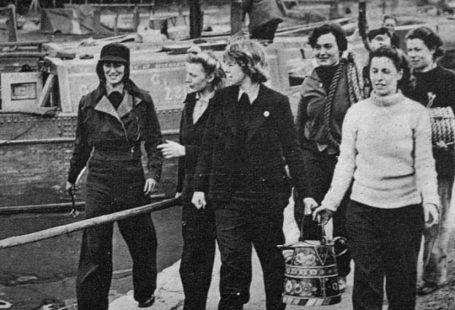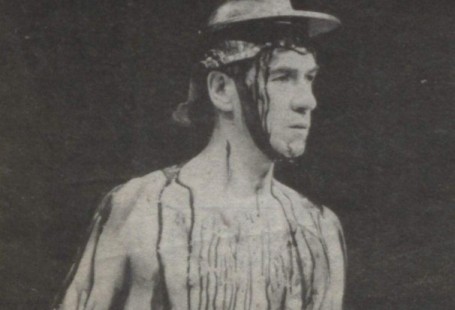‘If you want something to write, write about Rose Heilbron. She’s the greatest lawyer in history.’
These were the words of Jack Comer as he left the Old Bailey in September 1955, having been defended by 39-year-old Rose Heilbron QC, and subsequently acquitted.
Who was Rose Heilbron? Born in August 1914, she was the first woman to win a scholarship at Grey’s Inn, one of the first two women to be appointed to the King’s Bench, the first woman to lead a murder case, the first woman Recorder, and the second woman High Court Judge.

Liverpool Echo | 29 November 1956
The remarkable Dame Rose Heilbron died in 2005, having enjoyed a long and successful legal career. In this blog post, we focus on her career in the 1950s, where she won many trials and was appointed Recorder of Burnley.
In the 1950s Rose Heilbron QC became something of a celebrity, being hailed ‘Liverpool’s First Lady of Law.’ However, Heilbron, as a woman in a massively male-dominated field, had to overcome the prejudices of the day. The 1950s famously saw women once more tied to domesticity, after enjoying some liberation during the Second World War. By looking at the newspapers from the time, we can discover the fascinating tensions between Heilbron’s successes and contemporary notions of femininity.
In September 1955, the Daily Herald lists Rose Heilbron’s achievements so far that decade:
In 1951 Mrs Anna Neary, a 26-year-old mother, was accused of murdering a woman in her bath. Rose, QC, defended the woman. She was acquitted. In the same year, Louis Arnold Bloom, a West Hartlepool solicitor, was charged with murdering his mistress, Mrs Patricia Hesler. Rose, QC, defended him. He got three years for manslaughter. In 1952 Mrs Mary Standish, a 35-year-old mother, stood trial for the murder of her husband after an August Bank Holiday party. Rose, QC, defended her. She walked out of court a free woman. The same year, Harold Winstanley, a 19-year-old footman, was accused of a double murder at Knowsley Hall, near Liverpool. Rose, QC, defended. Winstanley was found guilty but insane and sent to Broadmoor. This year Dennis Patrick Murtagh was tried for murdering a man with a car. Rose, QC, defended. She appealed against his conviction. He was acquitted.
Heilbron’s manifold successes speak for themselves, however, somewhat alarmingly to modern readers, following the headline ‘Rose, QC does it again’ is the introduction: ‘A 39-year-old doctor’s wife from Liverpool brought off another victory yesterday.’

Daily Herald | 24 September 1955
Indeed, the press of the time seems uneasy: on the one hand Heilbron is a fabulously talented lawyer, but on the other hand, she is a woman. This is illuminated in a piece in the Liverpool Echo announcing Heilbron’s appointment to the position of Recorder, a nationwide first, which propels her ‘to the top of her profession.’
The article reports how ‘Rose has gone from success to success, but not through having a fairy wand wafted over her shapely head.’ The reporter is keen to point out that despite her success in a man’s world, Heilbron is very much a woman in the traditional sense, who ‘likes nothing better than looking after her Liverpool home.’ Even when dressed for Court, she is described as looking ‘most elegant.’
During the 1950s Heilbron herself was busy challenging societal norms, and not just through her work. An article in the Daily Mirror in March 1952 describes how Heilbron strongly defended in a talk at Manchester University ‘the right of professional women to resume their careers after having children,’ stating that it was ‘wasteful to the community that a qualified woman should almost certainly be lost to her profession on the advent of a family.’
Such a challenge to the status-quo did not go unnoticed, indeed, the reporter of the above article is at pains to point out: ‘Though Liverpool is as proud of Rose as it is of the Mersey Tunnel, few will say that she has a flair for clothes.’ Rose Heilbron may be one of the most successful lawyers of the age, but what is important is her dress sense, although it must be pointed out that it is elsewhere stated how ‘she can always be relied upon to wear attractive evening clothes.’

Rose Heilbron (centre) in her first appearance as Honourary Colonel of the 320 (East Lancashire) Battalion | Illustrated London News | 5 October 1957
In the face of such prejudice, and against all of the odds, Rose Heilbron rose to the very top of her profession. Rose Heilbron deserves all the respect and recognition for her remarkable abilities and talents, and for her trailblazing role in 1950s Britain.







